Most Dangerous Mistakes People Make in a House Fire
A house fire tests instinct more than strength. Thick smoke, alarms, and confusion can quickly overwhelm clear thinking and cause people to make fatal errors in seconds. Safety depends as much on avoiding mistakes as on taking action. Knowing the wrong moves before disaster strikes can turn panic into calm, informed survival.
Grabbing Belongings Instead of Leaving

Credit: iStockphoto
People often lose precious seconds collecting phones, wallets, or pets. According to the U.S. Fire Administration, a fire can double in size every 30 seconds. That means stopping to pack up can trap you. Once you’re out, firefighters can help recover what’s left, but no possession is worth the delay.
Using the Wrong Fire Extinguisher
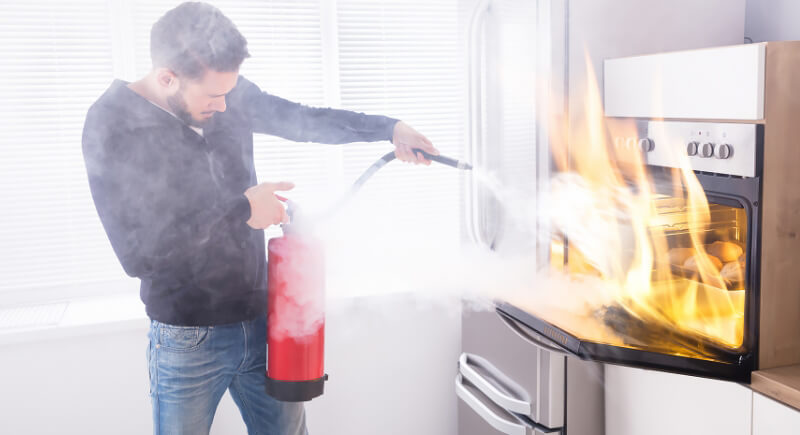
Credit: Getty Images
Not all fires respond the same way to suppression. Water can cause grease fires to erupt, and a CO₂ extinguisher is barely effective against burning wood. Labels matter: Class A targets paper and wood, Class B tackles flammable liquids, and Class C handles electrical fires. The wrong choice can escalate danger instantly.
Underestimating Smoke Inhalation
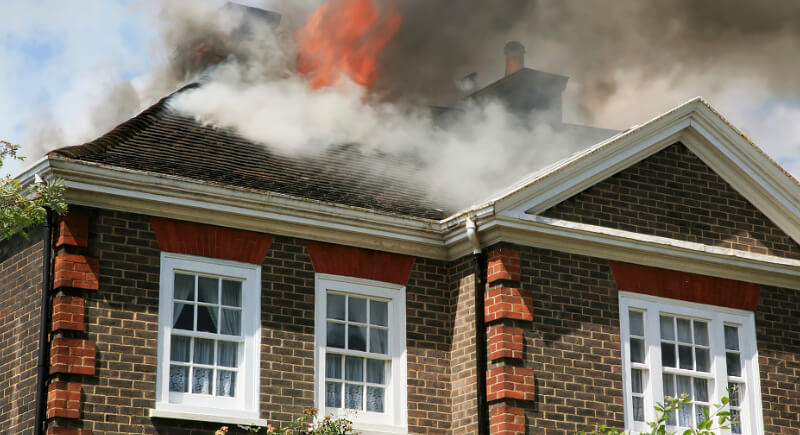
Credit: Canva
Flames draw attention, but smoke is the real killer. Toxic gases from burning materials can knock a person unconscious in minutes. The National Fire Protection Association notes that most fire fatalities stem from inhalation. Staying low to the ground while escaping offers access to cleaner, breathable air.
Overestimating Evacuation Time
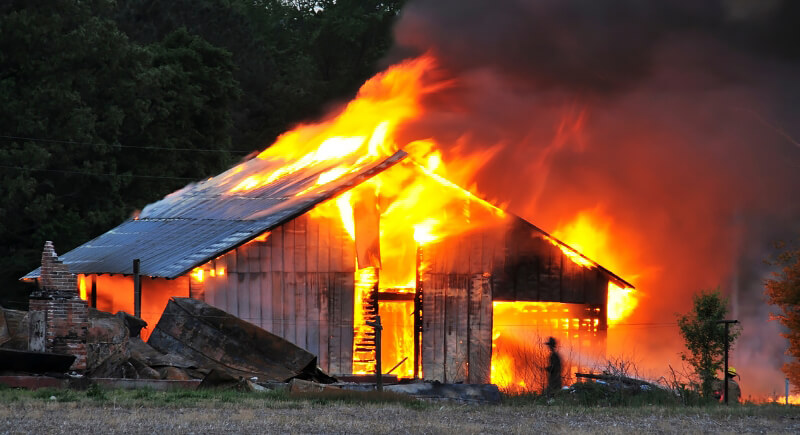
Credit: Canva
Modern homes burn faster than ever. Synthetic materials ignite quickly and can turn a small flame into a deadly blaze in under three minutes. Fire experts emphasize the importance of rehearsing escape routes in advance. When the alarm sounds, immediate action, rather than planning, is what saves lives.
Reentering the House for Anything
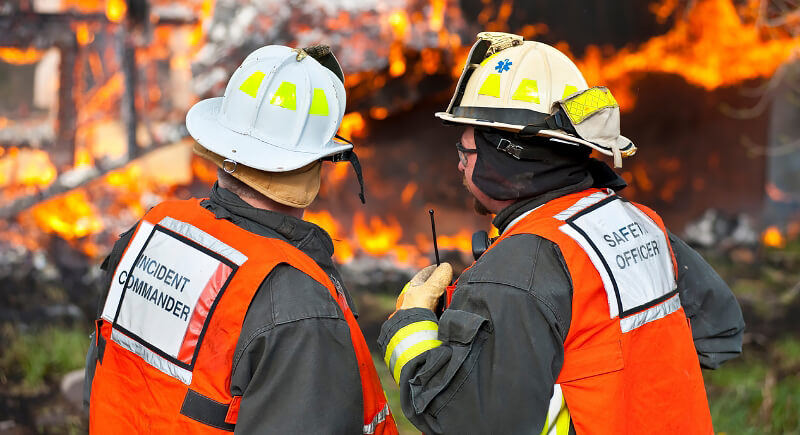
Credit: Getty Images
Going back into a burning home is one of the deadliest mistakes people make. Inside, temperatures can soar past 1,100°F (593°C) within minutes. Firefighters use specialized gear to survive those conditions. Once you’re outside, stay there and report anyone missing to responders instead of risking your life.
Ignoring Fire Alarms That Chirp
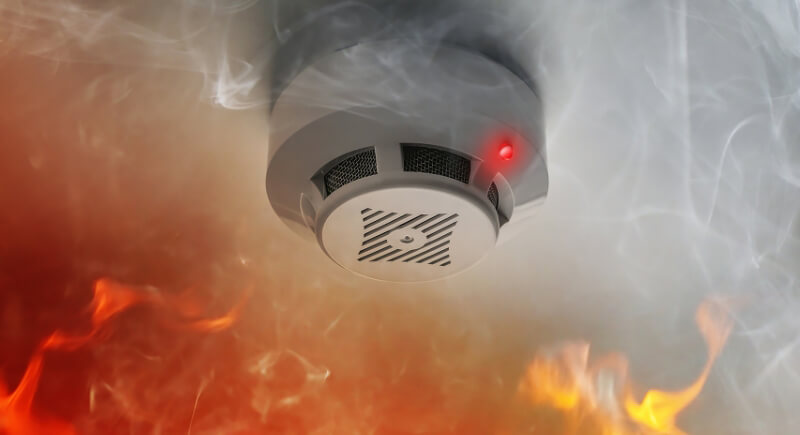
Credit: Canva
A chirping smoke alarm signals a dying battery. Silencing it without replacing the battery leaves you unprotected when danger strikes. The U.S. Fire Administration recommends testing alarms monthly and changing batteries every six months. The small effort can mean the difference between survival and tragedy.
Blocking Exits with Furniture or Storage
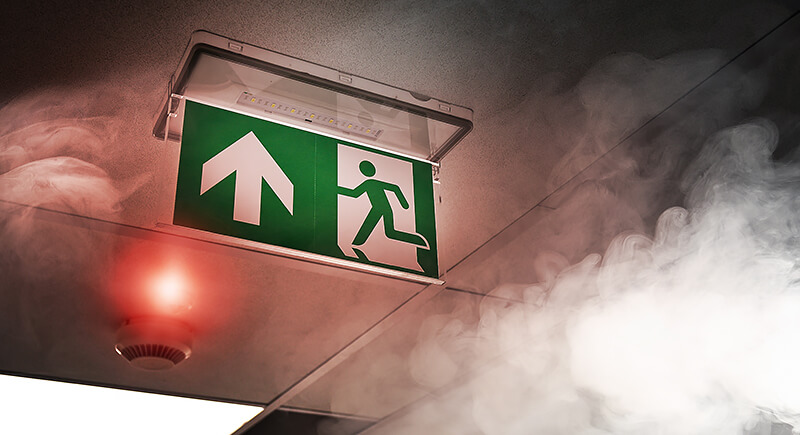
Credit: iStockphoto
Cluttered exits can turn a small fire into a deadly trap. Boxes, furniture, or even locked windows can block the quickest way out. Keep hallways, doors, and windows unobstructed and easy to open. During an emergency, a clear path is the difference between fast escape and fatal delay.
Mishandling Kitchen Fires

Credit: Reddit
Most home fires start in the kitchen, often because of quick reactions gone wrong. Pouring water on burning oil makes flames explode outward. Instead, switch off the heat and smother the fire with a metal lid or baking soda. Staying calm and acting correctly is key.
Panicking Instead of Acting

Credit: iStockphoto
When panic takes over, logic disappears. People may freeze, hide, or run the wrong way while wasting seconds that matter most. Fire experts emphasize the importance of staying calm and following a well-practiced escape plan.
Leaving Doors Open Behind You

Credit: Getty Images
Open doors act like fuel lines that feed oxygen to flames and spread smoke faster. Closing them as you leave can slow a fire’s advance and lower heat levels dramatically. Research from the UL Fire Safety Institute shows that a shut door can cut room temperatures by several hundred degrees.
Assuming Firefighters Will Arrive Instantly
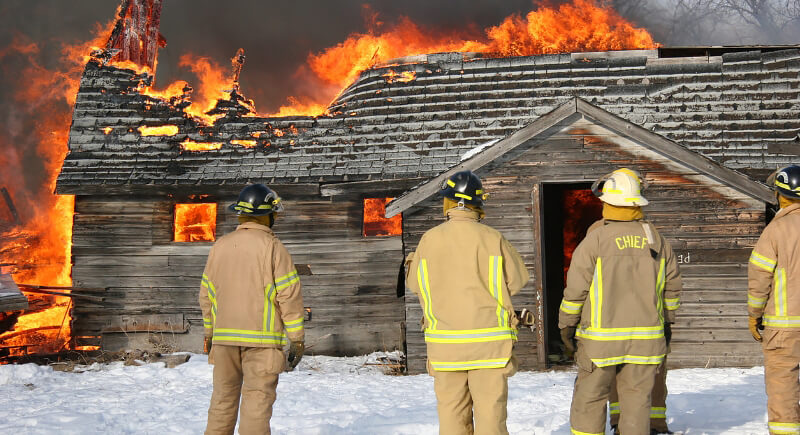
Credit: Getty Images
Fires spread faster than sirens can reach you. Even in well-staffed cities, response times often take several minutes, which is long enough for flames to double or triple in size. A clear escape plan and functioning smoke alarms buy crucial time.
Overlooking Electrical Hazards
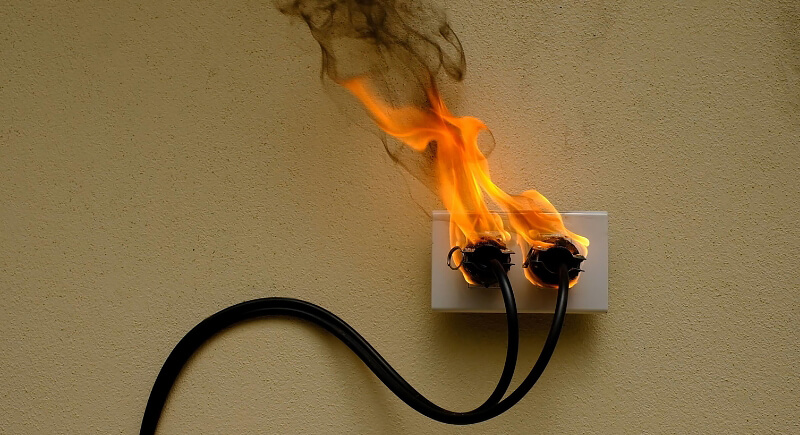
Credit: Alamy
Worn cords, overloaded sockets, and aging wiring are responsible for tens of thousands of fires every year. The Consumer Product Safety Commission links faulty electrical setups to over 50,000 annual incidents. Replacing damaged cords, limiting plug-ins, and giving outlets a break helps prevent sparks from escalating into something far more destructive.
Forgetting to Plan for Family Members

Credit: Canva
A fire plan only works if everyone is aware of it. Families should outline two exits per room, assign helpers for kids or elderly members, and choose a safe meeting spot outdoors. Practicing together ensures no one freezes or gets lost when seconds matter most.
Leaving Candles or Heaters Unattended

Credit: Canva
Candles and portable heaters cause thousands of preventable fires each year. A single draft or bump can turn them into ignition sources. Fire experts recommend keeping them at least three feet from anything flammable and shutting them off when you leave the room, even for a moment.
Failing to Maintain Fire Safety Equipment
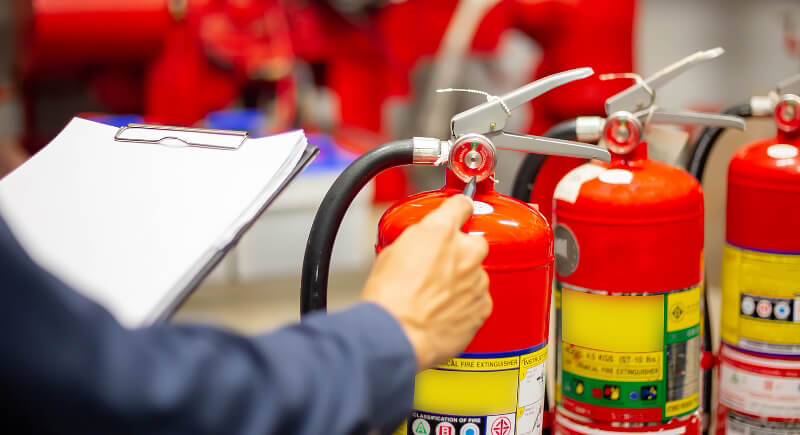
Credit: Getty Images
Fire alarms, extinguishers, and sprinklers protect only if they’re functional. Expired extinguishers, missing batteries, or clogged sprinkler heads can render fire safety measures ineffective. Inspect each device at least once a year and replace outdated parts.